Tencent Securities News Beijing time on the afternoon of September 28th news, recently, Forbes magazine in its 100-year special issue launched "100 world's greatest business thinkers list." They invited some business leaders who have created huge wealth and are very insightful to look forward to the next hundred years.
In the investment field, Forbes chose Berkshire Hathaway CEO Warren Buffett, KKR founder Henry Kravis, Blackstone Group CEO Steve Schwarzman, Tiger Fund founder Zhu Lean Robertson, Jack Berg, founder of Pioneer Group, the world's largest mutual fund company, and Shen Nanpeng, the global managing partner of Sequoia Capital, entered the list.
They say this about the historical changes of the past century and the prospects for the next hundred years:
1. Warren Buffett
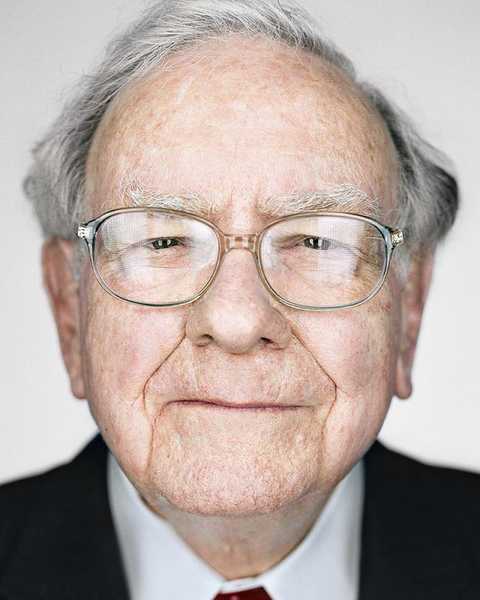
Prophet Omaha: Berkshire Hathaway CEO; undisputed most successful investor in history, the biggest philanthropist.
Talking about investment
Fortunately, at the age of seven or eight, I discovered a topic that really interests me. This is investment. At the age of eleven, I read every book about investment in the Omaha Public Library, and some of them read more than once. It happened that my father was investing, so on Saturday when I could sit down and have lunch with him, or on other days, I would go to his office and read with his collection. (If my father was a salesman selling shoes that year, maybe I will be a salesman selling shoes now.)
As for the investment book that has the most impact on me, I happened to buy it when I was studying at the University of Nebraska. This is Benjamin Graham's The Intelligent Investor. I am at least Also read five or six times. It’s written very well, shining with philosophical brilliance everywhere, and it’s easy to understand. I learned from this book the investment philosophy that I still pursue today.
To find a good company that understands how good it is, the essence lies in the following three points: they must have a lasting competitive advantage, be managed by competent and honest people, and the products are reasonably priced. Because we are not planning to sell this company, we are not interested in the profitability of next month or next quarter. What we care about is whether they can earn more in ten, twenty or even thirty years. Money. Then, we want to see a management team that we admire and trust.
One of my favorite investments is also a concrete manifestation of this investment philosophy, which is the Geico deal. As early as the age of twenty, I already knew about this company. I took the train to Washington, and I knocked on their door on Saturday. I opened the door to Lorimer Davidson, the company’s later chief. Executive officer. He answered my questions and taught me a lot about insurance business and explained to me what competitive advantages Geico has. That afternoon changed my life.
The price of vehicle accident insurance, on average, is about $1,800 a year. People certainly don't want to buy insurance, but they can't drive without driving. Everyone hopes that they will never use these products because everyone is not willing to encounter an accident. Geico found a way to offer products at a lower price than ever. When Berkshire gained control of the company in 1995, their market share was about 2%, and now it has reached 12% - we can save about $4 billion a year for the American public. Because they no longer have to buy the expensive insurance that used to be. When Leo Goodwin founded the company in 1936, it was this philosophy, and today they still operate like this.
Ben Franklin said many years ago: "Take care of your business, business will take care of you." Although it sounds a bit winding, it is indeed a famous saying. This tells us that you can't just satisfy your customers, but they should make them happy. In this way, they will become repeat customers, they will promote for you... As long as you have a group of happy customers, there will be a pretty good future in all likelihood.
However, in the final analysis, there is still an investment that is more important than all others. This is -- investing in yourself. If you feel that you are still unsatisfactory, you should make great efforts in that area and start immediately. When I was young, I was always in the market. I was very afraid to speak in front of the public, and I couldn’t overcome it anyway. So I spent $100 on the course of Dale Carnegie, which completely changed my life. I am highly confident about my new abilities. It was during this course that I opened my mouth to my current wife and successfully proposed marriage. My work in selling stocks in Omaha also helped a lot, even though I was only 21 years old, and it looked even younger than the actual age. No one can afford to take what you really have - in fact, everyone has hidden potential in their bodies that they have never used. If you can enhance your own potential by strengthening your ability, whether it is 10%, 20%, or 30%, then no one can take it, inflation can't be diluted, and it will definitely be with you for a lifetime of great wealth. .
2. Lee Shau Kee
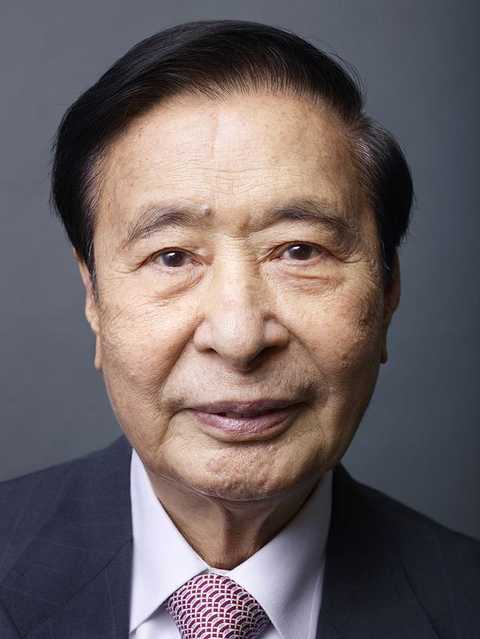
Hong Kong property tycoon, stock selection expert
Talking tutor
There is an old saying in China: "(Threesome, there must be my teacher,) and choose the good person from it." I can always learn from my friends what is worth learning.
3. Jack Bogle
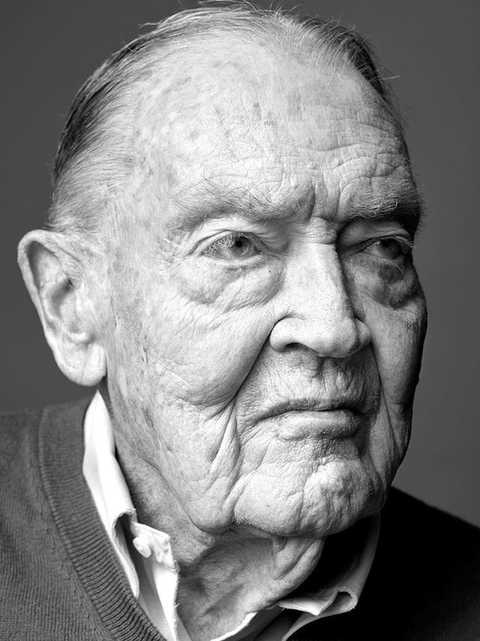
Index fund promoter, founder of Vanguard Group, the world's largest mutual fund company
Talking about innovation
In 1965, my mentor, Walter L. Morgan, founder of Wellington Management, called me to his office. It was a time of rapid profitability, and we only had a traditional balanced mutual fund. "I hope that you can do something to improve the company's situation, no matter what, it is your responsibility." I was thirty-five years old that year. So I decided to merge with a very aggressive stock fund in Boston, and the fund's manager team is younger than me. It seems that this is a very genius decision, but it is not. The era of rapid profitability fell apart, and these people eventually proved to be bad asset managers. In January 1974, the Wellington board, which had been controlled by the Boston company, fired my squid.
However, those mutual funds have not fired me because they have their own board of directors who are the directors of independent directors, so I went to persuade the board not to do so. This is a big fight. The final solution is a weird deal: I will continue to serve as the chairman and CEO of these funds, and we are responsible for our own legal, compliance, management and bookkeeping. (I have to re-take a name - this is the starting point for Pioneer.) My opponents, those who fire my squid, will continue to be responsible for the distribution, marketing and investment management of the fund. The whole structure is completely against rationality.
I have to find a way for Pioneer to master the investment management and distribution of his fund. In 1951, when I was writing a thesis at Princeton University, I did some research on index funds. I have also experienced the failure of active management. It happened that I read an article by Nobel laureate Paul Samuelson, who wrote: "Where, no matter who you are, create an index fund." I took this idea to the board of directors for discussion. They said, "You can't intervene in investment management." My answer is, "These funds don't have investment management." They finally agreed, and the indexing revolution in the fund industry began. Next, we decided not to allow Wellington and its sales team to continue to take over the distribution of our funds, so we canceled all sales commissions, and overnight, our funds became commission-free funds. The directors said, “You can't intervene in distribution.†My answer is, “We are not intervening in distribution, but we have fundamentally eliminated distribution.†They agreed again.
When the door is closed, as long as you observe it long enough and work hard enough, as long as you are strong enough, you can always find the open window.
4. Sandy Weill
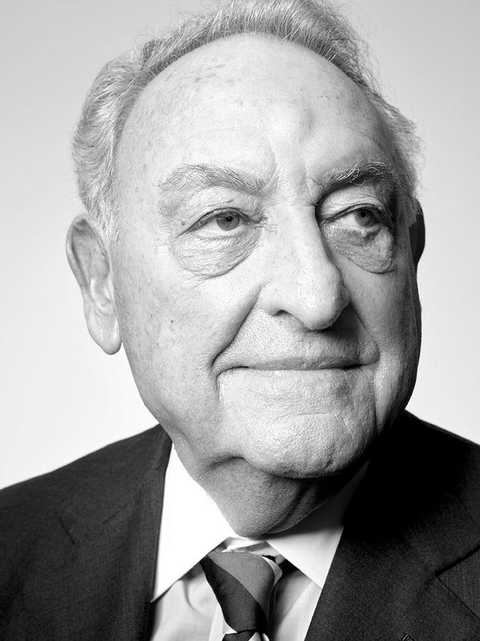
Leaders of Wall Street United Big Companies: Hilson, Traveler, Citigroup
Talking about wise retirement
I retired from the position of CEO of Citi in 2003 and resigned as chairman in 2006 three years later. This arrangement is because I am afraid that my life will change too suddenly. However, it turns out that this is a mistake. I should have resigned both positions at the same time. If you have been sitting in the position of CEO of a company for too long, then you should be more thorough when you retire. As the chairman of the board, I am still speaking directly on various issues and things that I think are wrong. Sometimes I can see from people’s reaction that they seem to think that I want to go back to the CEO. Go to the official office. What I want to emphasize is that we have to have another life outside of our own business, so that when it is necessary to retire, the handover will become easier. For me, the other life in the past four decades has been charity.
5. Daniel Gilbert

Founder of Quicken Loans, owner of the Cleveland Cavaliers, Resurrection of Detroit City
Talking about citizenship
I have never seen anyone who is chasing money and eventually gaining huge amounts of wealth. The irony is that people who have made a fortune in the end are often those who are motivated by a great idea and work hard to make it a reality.
In the past few years, we have taken another step forward in the practice of this philosophy. We have moved our headquarters, as well as a significant number of core business units, as well as a range of other businesses to downtown Detroit. We are committed to the whole body and mind. The mission we have to undertake is not only to continue to develop our business, but also to help lead one of the most damaged metropolitan cities in the United States to embark on the path of transformation and reconstruction.
Here is a happy little secret: Because our mission goes beyond simply pursuing profits, we actually become a more profitable (and certainly better) company. The money and time we invest in the local community creates a new environment, a new culture that in turn drives our employees to work harder and more productively. It’s really like water and fire, and yin and yang are born together. We have also attracted the best and brightest talents, and they are by no means a simple salary check.
The more you do your best to fulfill your mission, the more your business can make more money. We are a living example. Is this formula good?
6. Julian Robertson (JR.)
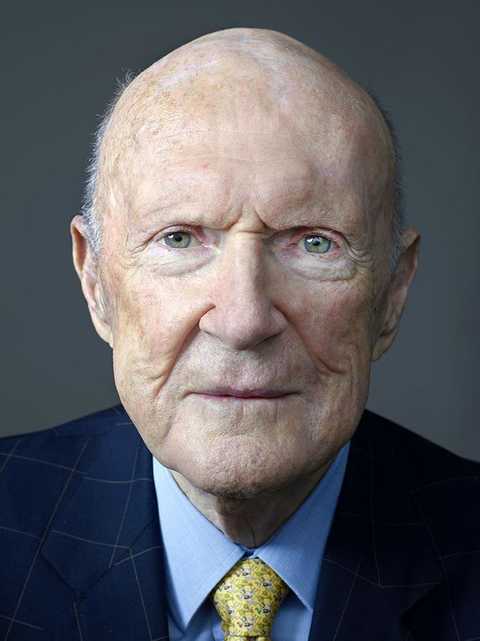
Hedge Fund Godfather, founder of Tiger Fund
Talk about flexibility
Do you know what kind of work do you like most when I was in the career in the 1950s? advertising. At the time, it was really all the talents who were involved in the advertising industry. investment bank? They are simply asking for talent to join. I have been interested in stocks since I was very young, so I really want to work in an investment bank. The perfect way is of course to read the business school first, then enter the investment banking department of a company, but I started from an ordinary securities broker. Today, many people are wondering why hedge funds can't make better performances – in my opinion, this is because the competitive pressure from other hedge funds has greatly increased. If I am starting my career now, I will first look at the competition in various fields and then consider those industries that are not hot.
7. John Doerr

Venture capital tycoon
Talking about keeping pace with the times
How do I keep being abandoned by the times? The answer is reading and listening. I always try to get myself with smart people of all ages and backgrounds. Most of my Wednesday night, my wife and I will organize a dinner for college students to find out how they see the world and what they are doing. Their potential to change the world's potential and enthusiasm always inspired me.
8. Steve Schwarzman
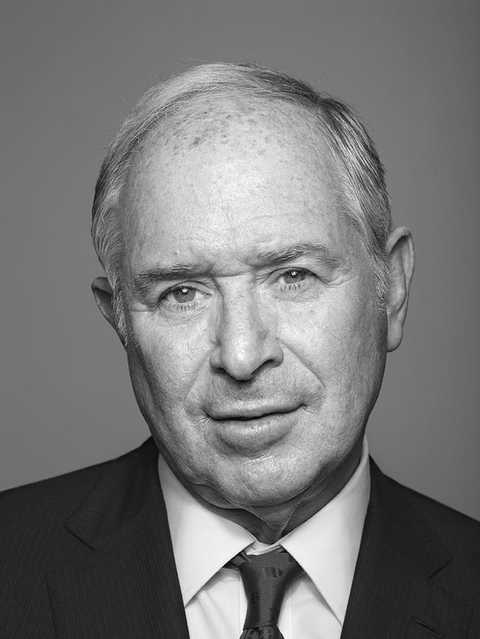
Private equity giant, one of the founders of Blackstone
Talking about risk management
In 1985, when we created Blackstone with Pete Peterson, our idea was to create a company that would allow everyone to enjoy working here and get a great return from their collaboration. This is because we have worked for a company with fierce internal competition, frequent disputes among partners, and employees calculating and rolling each other.
In the early days of Blackstone's history, when our business focus gradually shifted from mergers and acquisitions to private equity, the establishment of such an environment is very important. We didn't have any organization in the strict sense at the time. Anyone can walk into my office and ask me to make one or the other decision. Eventually, the deal, around a Philadelphia steel distribution company, Edgcomb Steel, went to the opposite of our expectations, and that's why we didn't really brainstorm among all of our partners. Later, I made a special souvenir for the deal, a small black tombstone that I can see every day, so I remember this lesson every day. I realized that we should establish a rigorous process where everyone can evaluate the transaction to avoid risk, even if it contradicts some of the ideas I originally created when I created the company. Everyone's work is no longer just a simple saying, "I think it's great." On the contrary, I insist that everyone sit together and analyze the possible problems of the transaction and the potential losses of investors' funds.
Today, we have established this process as a company-level system, and our trading team meets every Monday to evaluate each potential transaction in detail. We also copy this system into every business unit. I think that without this process, it is impossible for us to keep moving forward and eventually develop into a successful enterprise like today.
9, Charles Schwab (Charles Schwab)
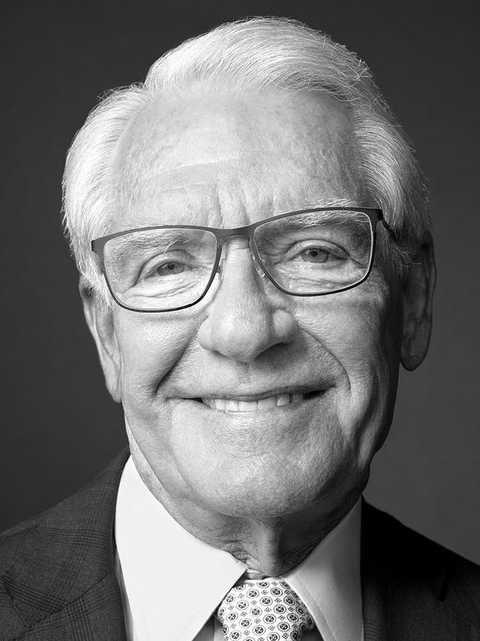
Discount broker giant, founder of Charles Schwab
Talk about values
From the late 1990s to the early 2000s, our company experienced tremendous growth. At that time, almost everyone wanted to stocks. However, the Internet bubble burst overnight and our business collapsed. I had to re-enter the mountain in 2004 and re-elect the CEO. We realize that past success masks mistakes and we are gradually losing direction. The only viable path to move on is to return to our core values ​​– to help retail investors at a lower cost, in a simpler way and with better service. We cut our expenses, streamlined our workforce, sold redundant business, and finally ushered in a turning point.
10. Masayoshi Son
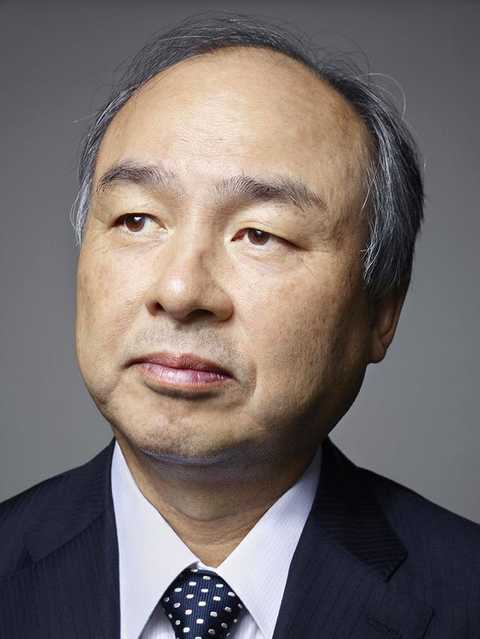
Trading Master, Founder of Softbank
Talking about artificial intelligence
I remember that when I was 19, I saw a photo of a microprocessor in my science magazine for the first time in my life. It's a tiny chip that can be held up with your fingertips, but it's the heart and brain of the entire computer. "God!" I said to myself, "Human life will be changed." This is the most important invention in human history. I couldn’t help myself, so I shouted out on the street. These microprocessors have greatly reduced the size of personal computers. Later, when these computers were connected, there was the Internet, and later, there was a smartphone. Now they have extended our knowledge and intelligence through artificial intelligence.
The industrial revolution of that year fundamentally changed people's lives. Today's information revolution is different. It not only enhances human ability, but also expands our brain cells. In a sense, our brains are now much more important than our arms and legs. This kind of super intelligence will bring about the changes that humans have never experienced before, and we can get huge benefits.
Wake up every morning, the first question in my mind is: Where am I now? I often don't know where I am, because I always fly around the world. However, I only have to sleep in a blink of an eye, because I am excited about everything I am witnessing.
11, Ray Dalio
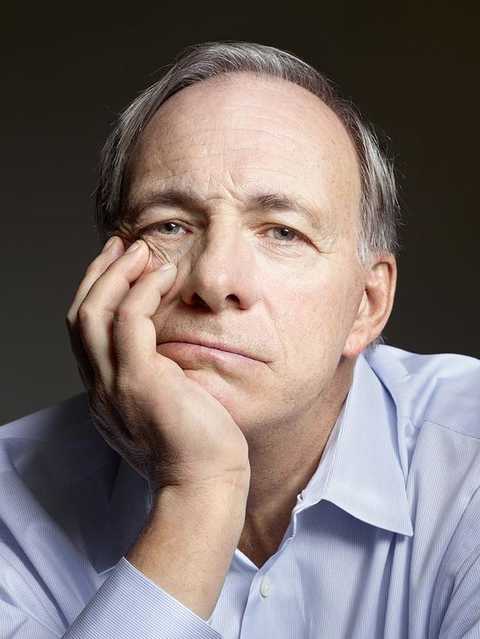
The king of hedge fund managers, the founder of the world's largest hedge fund bridge water fund
Talk about groupwork
I believe that the key to reshaping our lifestyle in the years to come is how humans compete and collaborate with artificial intelligence.
My point of view cannot be unaffected by the rules of decision making that I have made over the past three decades, and the performance of the latter has always been incredibly perfect. However, this is also a double-edged sword. I have learned that as long as I carefully consider my decision criteria and then record them as rules to form an algorithm that allows the computer to run parallel to my brain, I can make better decisions than I do alone. This also helped us to establish the concept of elite management, that is, collective decision-making is always better than personal decision-making. However, the way we put it into practice is to work with computers to gain a more thorough understanding of the issues.
12. Michael Milken
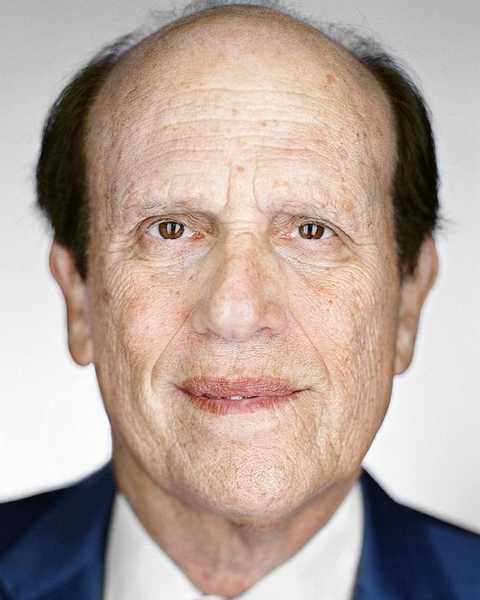
Financial alchemist, junk bond wizard (De Chong Securities), iconic figure on Wall Street, philanthropist
Talking about change
I went to work age and devoted myself to this business, which is in the middle of the past 100 years. Two issues of Forbes magazine have a particular impact on me, namely the 1967 50th Anniversary and the 60th Anniversary after 10 years. For a long time, for a long time, I always took the latter one in my briefcase and often read it out.
These two issues really make me feel that I don't feel the financial structure, and how the list of leading companies changes over time. I often say that cars have changed the world, but in 1917, the cost of most cars was based on raw materials, and the country's largest company was still American steel. Other top companies include international harvesters, American rubber, Yana Kangda copper, and Phelps Dodge. From these names, you can easily see the natural resources industry's dominance in society as a whole. A century later, among the products that dominated the market, that is, the cost of microchips, the proportion of natural resources has been negligible, and the most important part of the cost has become the intelligence of engineers.
A century ago, the automotive industry fundamentally changed the face of transportation systems and population migration. Ford was the 21st largest company in the United States. In 1956, when Ford went public, the transaction scale set a record for the United States, and the company became one of the largest companies in the United States. But today, Ford's market value is so small that it is not even as good as the one-year change in market value such as Amazon, Facebook, Apple or Google.
The key is that we must understand how these changes happen. In the 1970s, sewing machine manufacturer Shengjia set a dividend for more than a hundred years, and there was no record of one year of interruption, so it was well-known throughout the United States. However, the torrent of women's liberation is doomed to change everything, and this trend has plagued the winner for decades. The company doesn't really understand that women are less and less interested in sitting in front of the sewing machine than in the workplace.
I was an elementary school in the 1950s, and that was the time when Sputnik was in space. This made me start to look forward to science. Later I went to the University of California at Berkeley to study at the University because there were many Nobel Prize-winning scientists. Before the riots in Watts in 1965, I thought that the American dream was completely achievable, but I did not consider racial issues. The outbreak of the riots made me realize that everything was not so simple, so I changed my major subject from science to business. Twenty-two years later, I helped Reginald Lewis, a pioneer of black business, to help him finance a $985 million acquisition of Beatrice International Foods. Finance can change the world and create millions of jobs for qualified people.
13. Henry Kravis
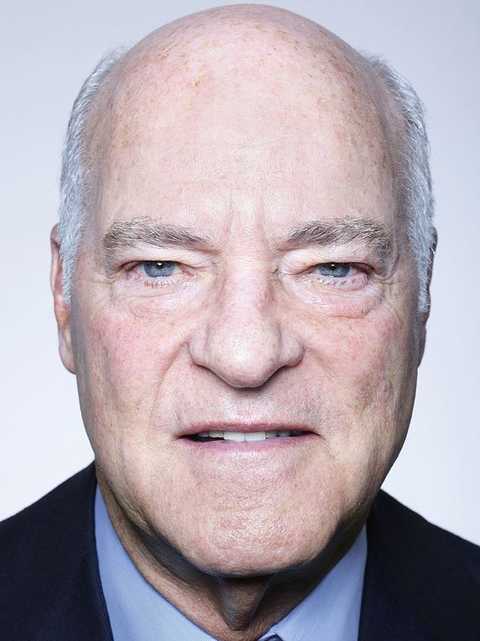
Private equity pioneer, co-founder of Kohlberg Kravis Roberts (KKR)
Talking about partners
“George Roberts and I are cousins. We met at the age of two and grew up together. We both attended Claremont McKenna College, during the summer we Living in New York, when I worked for Goldman Sachs, he was working at Bear Stearns. On a road trip from California to New York, we would ask each other in the car: 'What is the rate of return? P/E ratio What is it? 'At that time we didn't understand anything."
“People often ask: 'Do you both fight often?' Our last fight was at the age of seven, when he wanted to ride my new bike, and I didn’t want to give it to him. At that time we lived in Tulsa. He chased me running, I ran into the corner and my head blossomed. Then I sewed 23 stitches and thought: 'Well, there will be something better than this.' So we will I won’t fight anymore, and I have never been there since. I don’t agree with all of my thoughts. I don’t agree with all of his ideas. It’s just like this. It’s healthy. But we are so each other. I know the other person, so that I can pick up what he didn't finish. He is the same. Besides his wife, he is my best friend and confidant. I will entrust my life and my family to him."
If you have the same values ​​and focus on the same goals, such as creating a company that will last forever even after you retire, you can do much.
14. Carl Icahn
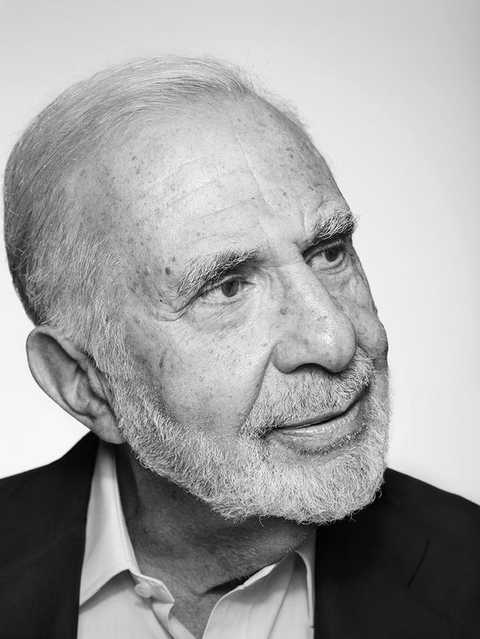
Corporate Sniper/radical investor, founder of Icahn Enterprises
Talking about reverse thinking
Sometimes, the best way to make money is to do things that will make most people say that you made a mistake and say that you are an idiot. It is certainly not easy to do it, but the fact is that everyone is drunk and you are alone. It is indeed possible. If your nerves are strong enough (which can actually be nurtured and exercised), you can't care what the experts say.
To be a reverse investor, you have to do a lot of homework yourself, and you must have the corresponding ability - it can't be reversed and reversed. For example, when the junk bond crash occurred in 1989, for a few days, I was really the only buyer in the entire market, and in just a few years, I relied on this to make a big fortune. I believed that the risk return of the market was better than it, because I felt that I was not buying bonds, but companies.
Of course you can't always judge correctly, and sometimes it takes a short time to prove it. Too many times, you may be acting too early. (For example, I am really convinced that the current market is about to encounter a crisis, or a major consolidation, so I have already done a hedging.) I acquired the bankruptcy of Stratosphere Hotel in Las Vegas. Many people think that I am crazy. The hotel is located at the northern end of Las Vegas's Long Street. At that time, the nearby neighborhood was still run-down, and it was doubtful that it would be a third world country. Then I bought all the houses around the hotel. This time, even Las Vegas locals and hotel staff are in front of me and say that I am crazy. However, the fact is that the deal I bought for the shacks and the 24 acres of land near the hotel eventually made the hotel a very attractive place. In the end, Goldman bought the hotel from me, and I earned about $1 billion in this deal.
Such a deal is certainly not easy, but there is always something in your body that is ticking, urging you to take action. I really like this feeling.
15. David Rubenstein
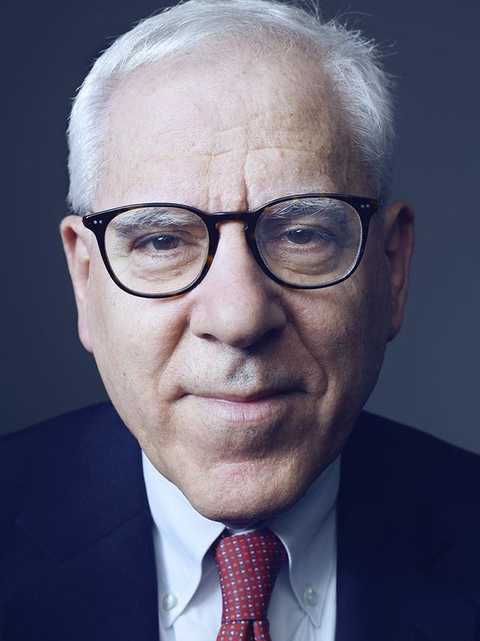
Washington financier, co-founder and co-chief executive of the Carlyle Group
Talk about happiness
“Thomas Jefferson said a famous saying: To some extent, this country is where happiness is pursued. Unfortunately, in his next 50 years of life, he has never defined happiness. What is it. In life, personal happiness may be the most elusive thing. As far as I am concerned, personal happiness is not so much derived from making money, but rather from donating money. I use my own method called 'mother test' to judge this. If your mother calls you and tells you that she is proud of what you are doing, then this is probably A good sign that you are on the road to happiness. My mother used to call me, and when I donate my money, she has more calls than I earned. too much."
16. Peter Lynch
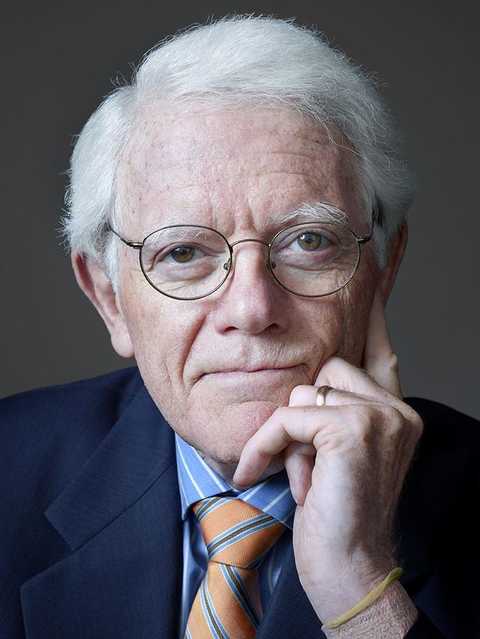
American asset manager, former portfolio manager of Magellan Fund
Talking about investment
My biggest mistake is that I always sell stocks too early. In fact, I received a call from Warren Buffett in 1989. My daughter picked up the phone and told me, "It was Mr. Buffett." Then I thought it was my buddy who was joking with me because my daughter was only 6 years old. I picked up the phone and then I heard the other person say; "I am Warren Buffett from Omaha, Nebraska." You know, his speech rate is very fast. "I love to read your book "One Up on Wall Street". I want to use one of the sentences in my year-end report. I have to use this sentence, can I?" I said "Of course, what is it?" He said: "Selling the 'winner' asset in your hand but holding the 'loser' is like cutting flowers and watering the seeds."
"The phrase he picked out from my entire book has always represented my biggest mistake. I have visited the first four home Depot stores that were established, and after the price of that stock has tripled I sold it; then it went up 50 times. If you are good at making investments, you can do it six times in ten times. But when you bet on it, if you bet on the stock, If you rise to three times or ten times, you can overwhelm your gambling mistakes. Therefore, you have to find a big winner. I sold my Home Depot too early and sold Dunkin's too early. Donuts). Why do I do that? Because I am a fool. For a good company, the passage of time is actually a big positive factor."
17. Vinod Khosla
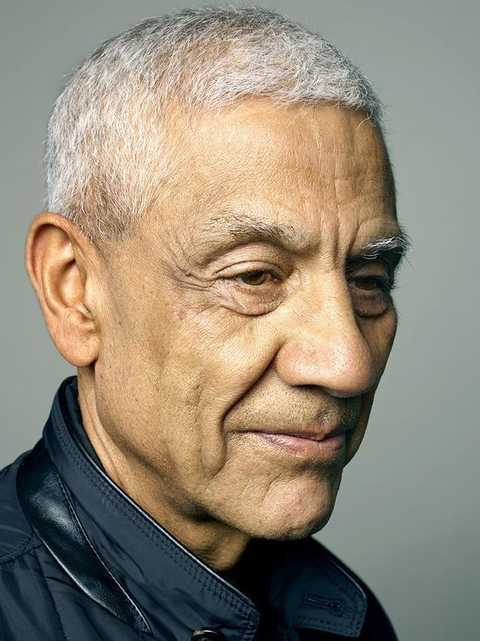
Former Sun Microsystems CEO, venture capitalist (Kai Peng Huaying, Khosla Ventures)
Talk about reputation
Frankly, I will neither build nor defend my reputation. I believe in the truth, no need to worry.
18. Muhammad Yunus
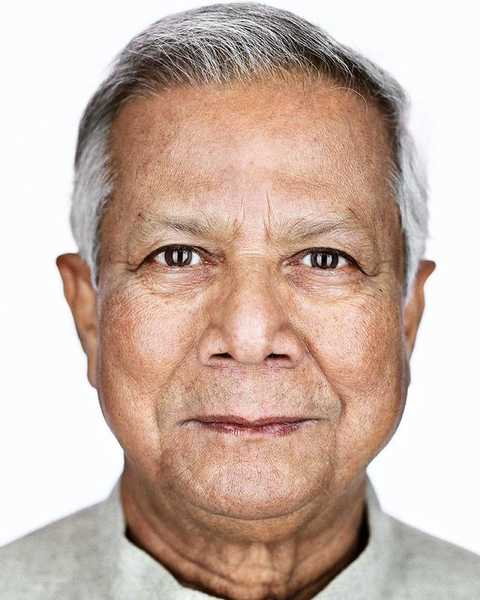
Father of Microfinance: Founder of Grameen Bank, Nobel Peace Prize Winner
Talking about selflessness
In the eyes of many people, the foundation of capitalism is greed in human nature. However, although human beings have a selfish side, they also have a selfless side. Why is the latter abandoned in the interpretation of people? Around the world, we are witnessing the emergence of more and more social enterprises, the so-called non-dividend companies, whose overall goal is to solve problems rather than make money. In social enterprises, profits are recycled within the enterprise, allowing them to continue to work hard to solve a problem. Investors can take back their own capital, but there is no other money return, they are harvesting the joy of their achievements. Making money is a pleasure, but bringing happiness to others is a higher level of happiness.
For example, we have established a rural energy company to bring electricity to rural areas of Bangladesh. We tell everyone: "How much did you spend on kerosene every month? How much money can we give us now? We will give you enough electricity." We used their money to help them build a residential solar system - three years. After that, they can maintain these systems themselves without any other costs. We have created 2 million rural solar homes, the largest off-grid lighting system in the world. These customers can watch TV and recharge their phones, and everything in front of them is incredible. This business is so successful that it attracts many competitors – we are very welcome to them because we are a social enterprise that is helping us solve problems.
In the past three years, in Bangladesh, we have been helping unemployed young people, as long as they can come up with their own profitable business ideas, we will provide investment. We turned into social enterprise venture capital funds for them. We assure them that all requests will not be rejected, but only those who are really prepared for implementation will receive funding. Now, we are funding 1,500 new entrepreneurs every month. This number is still growing month by month. So far, 19,000 companies have received our funds with a success rate of 99.5%. We believe that everyone is born with the ability to start a business, not a fate that is destined to work for others. In the early stages of human history, everyone is capable of being a hunter, collector, and problem solver. Such genes are still present in our bodies. We are not people who seek job opportunities, but people who create jobs. Finding a job is just a detour in human history.
19. Ronald Perelman
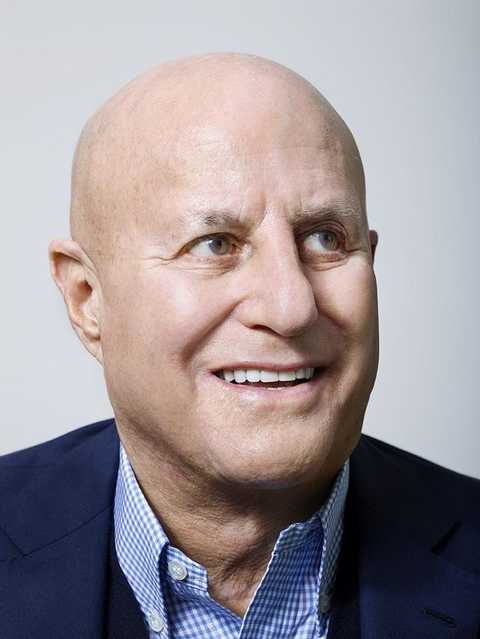
M&A expert
Talking about speed
"The world is changing so fast, you can't be happy with any form of passive passiveness, because it has long ceased to exist. Whenever you have to stand on your own 'game', the two hairy boys can Developed Google in their garage, and in 15 years it became the most powerful company in the world. It was like the henry-born Henry Ford era. Today, everything depends on Speed; there is always someone doing something better than what you are doing. One of our companies, Deluxe, was the largest film supplier to the film industry, and we knew that film was going downhill, but I don't know if I will fall off the cliff."
“Fortunately, we are already providing a digital solution for the same service. However, we thought it would take only a few weeks for the transition that took several years.â€
20. T. Boone Pickens
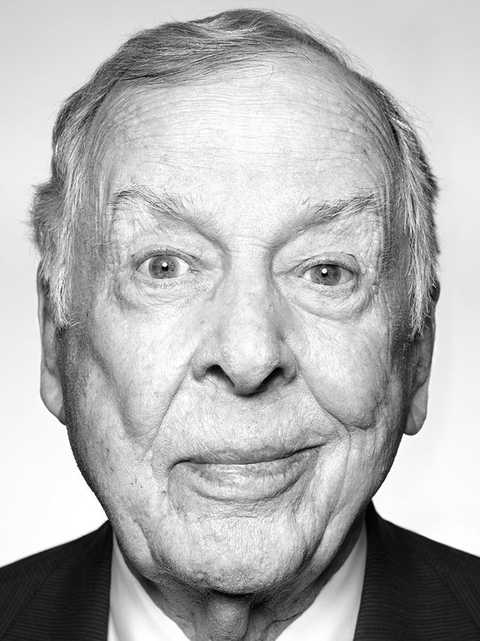
Oil speculators, hedge fund managers
Talking about business
"In the Christmas holiday, I suffered a lot of strokes. In June, I fell heavily and had to be hospitalized. My intelligence is still very strong, and I can understand and process the information as I did before the accident. But sometimes I do find myself becoming speechless. For someone like me who likes to talk about it, it’s hard to be embarrassed because I always think that the root of each problem can be traced back to lack of communication or It’s not clear enough to communicate. Many people who face this misfortune at the age of 89 will choose to hide. My life has always been like an open book, some of which are great, some are not so good. 。很明显我已ç»åˆ°äº†è‡ªå·±ç”Ÿå‘½ä¸çš„第四å£åº¦ï¼Œæ—¶é—´å·²æ‰€å‰©æ— å‡ ï¼Œå¥åº·çŠ¶å†µæ¯å†µæ„ˆä¸‹ã€‚但是,ç»å¯¹ä¸è¦è§‰å¾—我已è€å¼±ä¸å ªã€‚å¦‚æžœä½ åƒæˆ‘è¿™æ ·æ¯•ç”Ÿä»Žäº‹çŸ³æ²¹è¡Œä¸šï¼Œé‚£ä¹ˆä½ å°±è‚¯å®šæŒ–åˆ°è¿‡ä¸å°‘å¹²äº•ï¼Œä½†ä½ ç»å¯¹ä¸è¦ä¸§å¤±è‡ªå·±çš„ä¹è§‚心æ€ã€‚我ç»å¸¸ä¼šè®²ä¸€ä¸ªæ•…事,是说有个地质å¦å®¶ä»Žå层楼高的建ç‘物上失 掉è½ï¼›å½“ä»–è·Œè½åˆ°äº”楼的时候,心里想的是;'到目å‰ä¸ºæ¢è¿˜ä¸é”™ã€‚'é‚£æ‰æ˜¯å¯¹å¾…生命的最好方å¼ã€‚永远åšä¸ªä¹è§‚主义者,对未æ¥å年将会带æ¥çš„æ–°ä¸œè¥¿å¿ƒæ€€æ¿€åŠ¨ã€‚æˆ‘åœ¨å¹´è½»æ—¶å› æ¤è€ŒèŒå£®æˆé•¿ï¼Œè€ŒçŽ°åœ¨æˆ‘也将åšæŒåˆ°ç”Ÿå‘½ç»“æŸçš„最åŽä¸€åˆ»ã€‚â€
21ã€æ°å¥Žç³Â·è¯ºæ²ƒæ ¼æ‹‰èŒ¨(Jacqueline Novogratz)
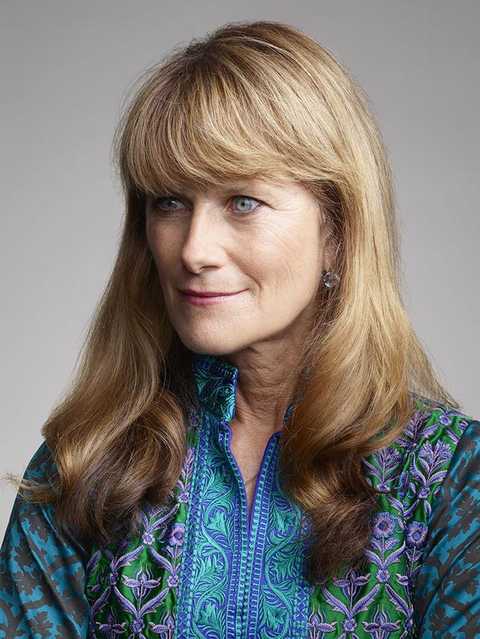
社会资本家,èªæ˜ŽäººåŸºé‡‘(Acumen Fund)创始人
è°ˆå誉
这是一个互è”时代,信æ¯ä¼ æ’å‰æ‰€æœªæœ‰åœ°ä¾¿åˆ©ã€‚åªè¦ä½ æªå®ˆè‡ªå·±çš„价值观,人们总会知é“ã€‚æ— é¡»æ‹…å¿ƒè‡ªå·±çš„åèª‰ï¼Œä½ çœŸæ£éœ€è¦å…³æ³¨çš„,是自己的å“è¡Œã€‚ä½ çš„å“行,则是é ç€ä½ 在åŒæƒ…心ã€é“德勇气ã€å†³æ–力ç‰æ–¹é¢çš„实际行动建立起æ¥çš„。这些特质就åƒæ˜¯ä½ çš„è‚Œè‚‰ä¸€æ ·ã€‚åªè¦ä½ æ˜Žç™½äº†è¿™ä¸€ç‚¹ï¼Œä½ å°±ä¸å¿…费心去ä¿æŠ¤è‡ªå·±çš„åèª‰â€”â€”å…¶ä»–äººä¼šæ›¿ä½ åŽ»åšçš„。
22ã€æ²ˆå—é¹ï¼ˆNeil Shen)
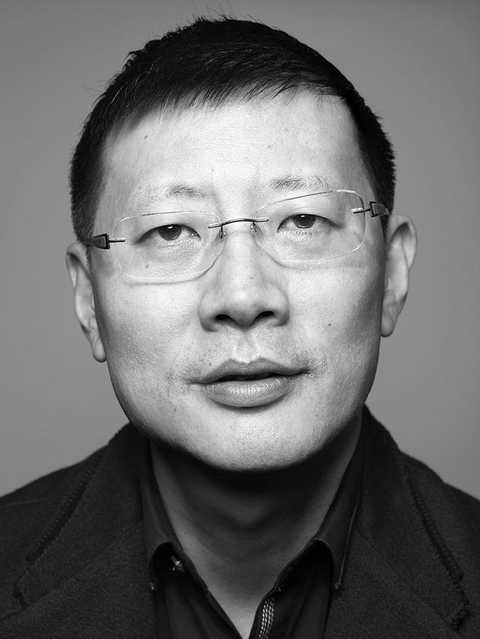
ä¸å›½æ°å‡ºçš„风险投资人
è°ˆå¦ä¹
红æ‰èµ„本全çƒæ‰§è¡Œåˆä¼™äººæ²ˆå—é¹å› å…¶æŒä¹‹ä»¥æ’çš„å¦ä¹ 精神而上榜。在é˜è¿°è‡ªå·±å¯¹ä¸‹ä¸€ä¸ªç™¾å¹´çš„看法时,他表示:“投资行业的å˜åŒ–日新月异,这使得我们必须æŒä¹‹ä»¥æ’地å¦ä¹ ï¼Œè¿™æ ·æ‰èƒ½ä½¿è‡ªå·±å§‹ç»ˆå¤„于行业最å‰æ²¿ã€‚我们的å¦ä¹ ä¸ä½†è¦é€šè¿‡å¤§é‡çš„阅读完æˆï¼Œæ›´ä¸ºé‡è¦çš„是ç»å¸¸å’Œä¸åŒé¢†åŸŸçš„专业人士深入交æµï¼Œæ¯”如著å的科å¦å®¶ã€æ”¿ç–的制定者ã€ä½œå®¶ã€å“²å¦å®¶ç‰ç‰ã€‚这些多层次的交æµèƒ½å¤Ÿå¸®åŠ©æˆ‘们了解全çƒçš„最新观点,拥有å‰çž»çš„视野和æ•é”的洞察力。â€
“我们致力于在早期就帮助ä¼ä¸šå®¶å»ºç«‹å…¨çƒæœ€ä¼Ÿå¤§çš„ä¼ä¸šï¼Œè€Œæˆ‘们所助力的大部分ä¼ä¸šéƒ½æ˜¯æŠ€æœ¯é¢†å…ˆä¸ºä¸»ã€‚我ä¸è®¤ä¸ºäººç±»ä¼šè¢«äººå·¥æ™ºèƒ½å–代,我们的工作更åƒæ˜¯è‰ºæœ¯ï¼Œè€Œéžç§‘å¦ã€‚â€
â€é¢å¯¹æœªæ¥ï¼Œå¦‚何æŒç»åˆ›é€ 价值并领先市场,这将会是一个挑战。â€
23ã€ç½—伯特·å²å¯†æ–¯ï¼ˆRobert Smith)
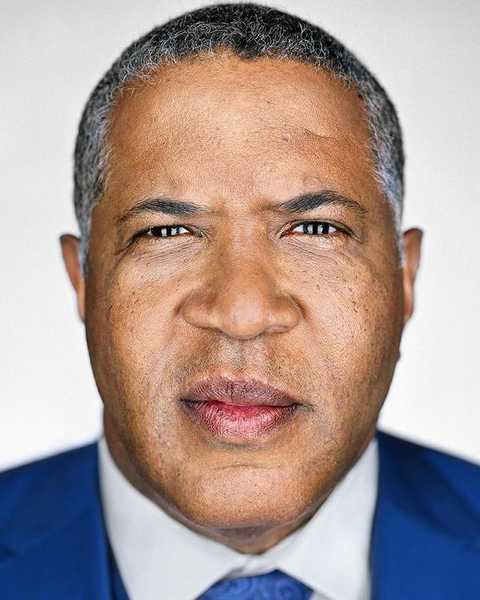
ç§å‹Ÿè‚¡æƒäº¿ä¸‡å¯Œè±ªï¼Œç§å‹Ÿå·¨å¤´Vista Equity Partners的创始人
è°ˆç›®æ ‡
“作为一å化å¦å·¥ç¨‹å¸ˆçš„ç»åŽ†è®©æˆ‘对å¤æ‚系统的çƒæƒ…å˜å¾—æ•é”,让我想è¦åŽ»äº†è§£å®ƒä»¬ã€è§£æž„å®ƒä»¬å’Œæ‰¾åˆ°å®ƒä»¬çš„å¹³è¡¡ç‚¹ã€‚ç„¶è€Œï¼Œè™½ç„¶æˆ‘åœ¨è¯¾å ‚ä¸Šä»Žæœºæ¢°çš„ç»å¯¹çœŸç†ä¸å‘çŽ°äº†ç¾Žä¹‹æ‰€åœ¨ï¼Œä½†è®©æˆ‘æ‰¾åˆ°ç›®æ ‡çš„åˆ™æ˜¯çŽ°å®žä¸–ç•Œä¸ä¹±ç³Ÿç³Ÿçš„äººæœºäº’åŠ¨ã€‚æ— è®ºæˆ‘ä»¬èƒŒåŽçš„驱动力是什么,幸ç¦çš„泉æºéƒ½æ¥è‡ªäºŽæ‰¾åˆ°è‡ªå·±çš„ç›®æ ‡ã€‚ä¸ºäº†æ”¹å–„äººä»¬çš„ç”Ÿæ´»å’Œåˆºæ¿€ä¸–ç•Œå‘生æ£é¢çš„改å˜ï¼Œæˆ‘们æ€è€ƒã€å®žå¹²å’Œå‘现,并从ä¸æ‰¾åˆ°äº†ä¹è¶£ã€‚在这个知识资本的年代里,智力æ‰æ˜¯ä¸–界上最值钱的一ç§è´§å¸ï¼Œè€Œæ‰¾åˆ°ç›®æ ‡â€”â€”å¹¶ä¸”åˆ›é€ å‡ºç¬¦åˆæˆ‘们的价值观的价值——的机会已ç»å˜å¾—å‰æ‰€æœªæœ‰ä¹‹å¤§ã€‚â€ï¼ˆç¼–译:费绿ã€æ˜Ÿäº‘)
marine vinyl, outdoor vinyl, pvc leather for marine, pvc leather for outdoor
Outdoor Vinyl,Coated Fabric For Outdoor,Outdoor Leather Furniture,Outdoor Leather Fabric
Vigor Plus Co., Ltd , https://www.vigorplusx.com
![<?echo $_SERVER['SERVER_NAME'];?>](/template/twentyseventeen/skin/images/header.jpg)